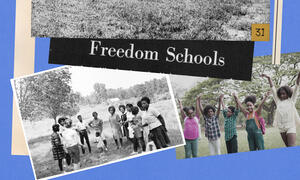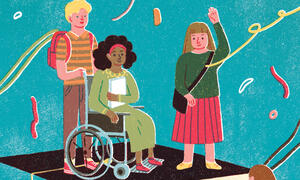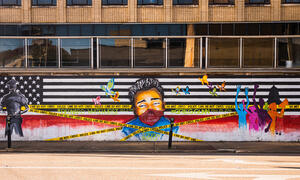Freedom Schools for Today’s Justice Movement






To honor educators this Teacher Appreciation Week, we offer a preview article—by the dedicated teachers and staff at Wilkins Elementary School in Jackson, Mississippi—from the upcoming Spring issue of Learning for Justice magazine. Educators often work under challenging circumstances yet maintain their commitment to ensure the education of our nation’s young people. These LFJ resources celebrate and uplift the efforts educators engage in to make our world a better place.

“Because we know that attacks on knowledge are fueling threats to freedom, and that repression in one place fuels its spread elsewhere, we call for global resistance to all efforts to destroy the vital tools that help us to imagine and create more equitable and inclusive futures for us all.” —African American Policy Forum